W.
 for language including sexual references, some alcohol abuse, smoking and brief disturbing war images.
for language including sexual references, some alcohol abuse, smoking and brief disturbing war images.
Reviewed by: Daniel Thompson
CONTRIBUTOR
| Moral Rating: | Offensive |
| Moviemaking Quality: |
|
| Primary Audience: | Adults |
| Genre: | Political-Satire Dark-Comedy |
| Length: | 2 hr. 15 min. |
| Year of Release: | 2008 |
| USA Release: |
October 17, 2008 (wide—2,000 theaters) DVD release: February 10, 2009 |
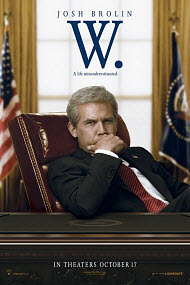
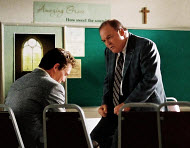
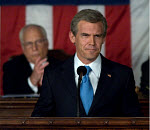

What do Hollywood celebrities believe about spiritual issues? Find out
Should Christians seek political power or should we only focus on evangelism? Answer
What part should morality play in politics? Answer
Does character matter in political leaders? Answer
What advice do you have for new and growing Christians? Answer
How do I know what is right from wrong? Answer
How can I decide whether a particular activity—such as smoking, gambling, etc.—is wrong? Answer
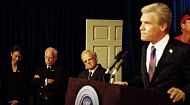
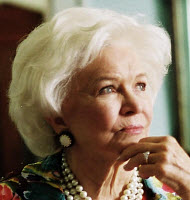
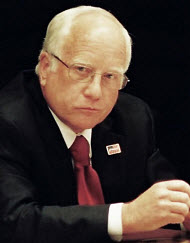
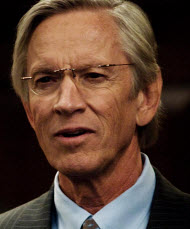
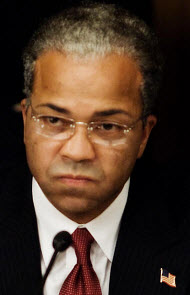

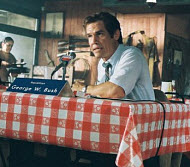
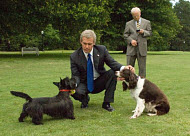
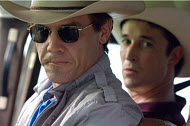
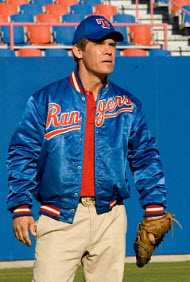

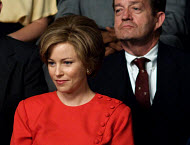
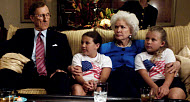
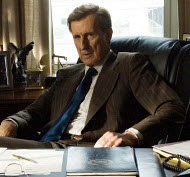
| Featuring |
|---|
|
Josh Brolin … George W. Bush Elizabeth Banks … Laura Bush James Cromwell … George Herbert Walker Bush Ellen Burstyn … Barbara Bush Richard Dreyfuss … Dick Cheney Sayed Badreya … Saddam Hussein Noah Wyle Jeffrey Wright Stacy Keach Scott Glenn Toby Jones Thandiwe Newton See all » |
| Director |
|
Oliver Stone — “JFK,” “Alexander,” “Nixon,” “Natural Born Killers,” “Wall Street,” “World Trade Center” |
| Producer |
|
Emperor Motion Pictures (China) Global Entertainment Group Co. (China) See all » |
| Distributor |
Who would’ve thought that the most overtly political and controversial movie of the year would have been all about relationships? Not me for sure, but that’s what we get in Oliver Stone’s “W.”, a biopic on our current president, George W. Bush. Now Stone has been known for producing propaganda and conspiracy-filled films to varying degrees of success, with the fantastic “Platoon” at one end of the spectrum, and the listless “Alexander” at the other (“JFK” and “Nixon” lie somewhere in between). Surprisingly, “W.” doesn’t fit the mold of the films mentioned above. It’s a sometimes factual, sometimes speculating tale of Bush’s rise to power and how several key relationships influenced his life and the decisions he made as President.
The film tells the story from two separate points in time. The first begins in 2002, near the beginning of Bush’s presidency, and the difficult decisions that came after the events of September 11, 2001. The other begins in 1966, where Bush is a Yale College student; wanting nothing more than to drink his way into and out of trouble. As we see Bush grow up over three decades, we simultaneously see what transpires in the White House from 2002-2004. This is done by Stone because he wants you to see how W. became the man he is today, and why he made the decisions that he did.
There are five key relationships in the film that are central to the growth of the main character. The first is between W. and his father, George H. W. Bush (James Cromwell). In this relationship, George H. W. Bush seems to never be happy with his son, and W. seems to be constantly seeking approval from his father, all the while hearing how great his younger brother Jeb is. It’s this feeling of inadequacy that factors greatly into W.’s political career.
The second key relationship is between W. and his struggles with alcohol. Stone chronicles W.’s bouts with alcohol abuse for over twenty years. It’s during this time we see Bush flounder from one job to the next, never interested in any of them. We also see Bush defeat this struggle and maintain his sobriety after doing so.
The third key relationship is between W. and his wife Laura (Elizabeth Banks). Although they sometimes have their differences, W. always has the love and support of his wife. This is portrayed as Bush’s healthiest relationship that he has with anyone.
The fourth key relationship is between Bush and his advisors while President. This relationship takes place mostly within the confines of board meetings, where his advisors argue with each other about the status of our nation’s security, and what actions need to be taken to continue in the fight against terrorism. Some of the key players in these meetings are Colin Powell (Jeffrey Wright), Vice President Dick Cheney (Richard Dreyfuss), Karl Rove (Toby Jones), Donald Rumsfeld (Scott Glenn), and Condolezza Rice (Thandiwe Newton).
The fifth key relationship is between Bush and God. Stone portrays a specific time in W.’s life where he realizes his sins and becomes “born again.” While that is all well and good, Stone takes this relationship and makes it the focal point of his argument that Bush’s Christianity led to calamity in the White House.
When it comes to Bush’s time in office, Stone seems very factual. He uses a lot of exact dialogue from speeches and press conferences that actually took place. While the dialogue in these meetings may not have actually taken place, the events that occurred because of them clearly did. And it’s clear that W. was clearly influenced by those around him in making the decisions that led us into the war in Iraq. Regardless of how you may feel about our current situation in Iraq, it has been admitted that mistakes were made and if there’s one thing this film does exceptionally well, it’s chronicling those mistakes with facts. Oliver Stone even has a Web site dedicated to all the documentation used for the “facts” that you see on screen. He also manages some humor in these situations, specifically in a highly symbolic scene where Bush and his advisors are meeting out at W.’s ranch in Texas, and, while discussing their different military options, they get lost on the ranch.
When it comes to Bush’s life before the White House, however, Stone is less factual. He uses facts to set up a chronology of Bush’s time at Yale, and in various jobs—like on an oil rig, owning the Texas Rangers and becoming governor of Texas. A lot of Bush’s mindset is nothing more than Stone’s interpretation and is speculation at best. The degree of animosity between Bush and his father can’t really be known by anyone outside of the two that were involved.
From a moviemaking standpoint, Stone has the ability to weave an interesting tale. The film is long at 140 minutes, but it seemed to go by quickly for me, jumping back and forth in time from event to event. That was probably because of the terrific cast. Everyone is great in supporting roles, especially Thandiwe Newton and Richard Dreyfuss, who, I think, are uncanny as Condolezza Rice and Dick Cheney. Josh Brolin plays President Bush very well. While he doesn’t always look the part, the mannerisms, quirks, and accent are right on. The most thankless role is probably that of Laura Bush. Elizabeth Banks plays the wife of W. with grace, sincerity, and what seems to be a natural Texan accent. It seems that in some twisted way Stone is being sympathetic to Bush, giving a variety of reasons why he made the mistakes that he made: A father’s lack of approval, problems with alcohol, and advisors who wanted nothing more than to use him to put forth their own agenda.
There is some heavy language used in the movie, but I didn’t find it gratuitous or unrealistic at all. Also, W. is seen in college drinking on many different occasions, as well as driving while under the influence of alcohol. As poor as his behavior was, Stone shows restraint behind the camera and doesn’t show more than necessary in illustrating Bush’s lifestyle as a young adult.
The biggest moral problem with the film is Stone’s interpretation of the negative effect Bush’s relationship with God has on his life. Stone portrays Bush as a man that is unmotivated, but fun and ultimately harmless. And, if it wasn’t for Bush being “born again,” he would’ve continued to live an innocuous life in the public sector. But because Bush believed God transformed his life and subsequently chose him as President, Bush was responsible for the irreparable mistakes that were made during his tenure in office. It’s as if Oliver Stone believes Christians can’t be politicians, and shouldn’t be a part of the political process, even though the man Stone currently supports for President, Senator Barack Obama, is himself a professing Christian.
If you can somehow leave your politics at the door and not worry about facts and fiction (I know that’s a really big ‘If’), the film is a great cautionary tale. It shows the terrible effects of alcohol. It shows the importance of family, and makes those of us who have supportive spouses, honest friends, and encouraging parents thankful for their positive influence in our lives. It should, also, make us as Christians feel accountable for our actions and remind us that the way we live our lives is an important indicator of our faith.
Violence: None / Profanity: Heavy / Sex/Nudity: Minor
See list of Relevant Issues—questions-and-answers.


none
As a film, this production has much to be admired. The casting is absolutely brilliant. Burstyn, Brolin, Jones, Cromwell—all nail every appearance, every performance. Dreyfuss could easily sweep the Oscar for his portrayal of Vice President Dick Cheney. Considering performances and technical achievement, this film is firing on all cylinders.
The content is another matter entirely. If you already agree with the over-travelled, beaten path that pop culture has incessantly trodden since day one of George W. Bush's presidency, then you will find this movie highly recreational. But in light of how positively reinforced one might feel, it is plainly obvious this film says nothing new and, therefore, lacks the real importance as a film that an artist would hopefully really want in their work. It is no more than pop culture feeding itself, grabbing onto its most prized opinion and masturbating with it for all to watch.
The most redeeming aspect of the entire movie is seeing someone repent of alcoholism. (Whether or not George W. Bush drank THAT much is another matter entirely, but given Stone's ability to take one seed of truth and planting acres for a harvest of ideas helps keep things in perspective). Furthermore, while Brolin's performance and characterization is commendable in and of itself, Stone has left us with no more than a caricature of the leader of the United States—something better suited and appreciated on Saturday Night Live.
As with any political leader, there will be people who like them and people who do not like them. This film, however, plays to only one audience. Better films are built on more equality of opposing ideas, but it is painfully clear Stone was not interested in that. While he said it was a fair portrayal, what he produced proves otherwise.
Portraying only one opinion, however, is no reason to be upset or to throw the whole production out as worthless. But, there was at least one foul committed in Stone's entertainment. Stone goes too far, I believe, in the scene where President George W. Bush visits wounded soldiers in the hospital. I have seen the President cry from a podium during a speech, lamenting over lost lives in this war. To display him as uncaring or in any way unsympathetic to the loss of life others have faced is an egregious misconception and dishonors the real humanity of the leader of our nation. Stone goes over the line—and I blow the whistle.
As much as the film wants to say, it does also trip over itself, trying to make its arguments. While portraying the conflict that President George H.W. Bush must have felt as the father of W., there is inconsistency in the depiction in this film. In one scene, George Senior is ridiculing his son, and (albeit years later, but only minutes in this movie) he is inviting his son, George Junior, to assist him in his presidential campaign. There are more examples of this, but suffice it to say it proved a weakness to the arguments Stone seems so desperately trying to make.
If you agree with the pop culture addiction to hate President George W. Bush, then you will be in good company seeing this film. If you don't, you may just be offended. But one thing is for sure, you will not find any middle ground where thoughtful discussion or new ideas may ensue.
Moral rating: Offensive / Moviemaking quality: 4
none
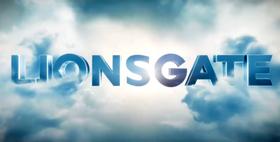
My Ratings: Moral rating: Average / Moviemaking quality: 4